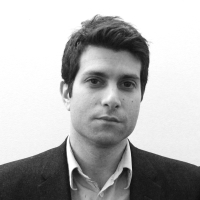Mosul, Iraq’s second-largest city, was seized Tuesday by members of a militant Islamist group that was disowned by al Qaeda for being too extreme and uncompromising. The Islamic State of Iraq and the Sham (ISIS) now controls a transnational and still-growing kingdom that stretches across northern Syria and into western and northern Iraq. And they’re spreading fear even further, with a brutally effective and disconcertingly accurate social media campaign.
Moderates only by profane contrast, al Qaeda takes the position that winning popular support is a necessary precursor to declaring the establishment of the Caliphate. ISIS, which considers itself the embodiment of the Islamic Caliphate, declares the kingdom of God wherever the group flies its black flag. But as ISIS’ power grows its schism with other Islamist groups like al Qaeda may pale compared to the reprisals it will face from government powers. Mosul is ISIS’ signature victory so far, its biggest achievement. But the price of victory could be a giant target on their backs. This could be the moment when regional and international powers like the United States decide to intervene against ISIS. The takeover of Mosul could even trigger a response from Iran, the powerful Shia state that borders Iraq.
In areas already under ISIS control like the northern Syrian city of Raqqa, ISIS has interpreted its mandate through brutal repression and public slaughter, which the group gleefully broadcasts over its Twitter accounts. In Syria the group tweeted images of public crucifixions. In Mosul it is now posting photos of the corpses of Iraqi security forces. An image of a masked ISIS fighter standing over three dead Iraqi soldiers lying in pools of their own blood has 169 retweets and 78 favorites so far.
Key areas of Mosul—including military installations—fell Tuesday after a coordinated ISIS campaign that began five days ago. The campaign started with an influx of ISIS fighters into the city and a series of gun battles and attacks by suicide bombers on government forces. Initially the Iraqi government played up the success of its counterattack, announcing it had killed more than 100 terrorists and repelled the majority of ISIS fighters.
But the government’s claims were undermined by ISIS’ own accounts of the battle, as the group capitalized on an increasingly potent weapon of irregular warfare, its social media accounts. On its official Twitter feeds ISIS broadcast images of abandoned military posts, executed Iraqi soldiers, and neighborhoods where its banner hung and its fighters marched through the streets. By Tuesday, the government in Baghdad acknowledged that the ISIS propaganda had been closer to the truth than its own official statements. Prime Minister Nouri al-Maliki declared a state of emergency while Osama Nujaifi, speaker of the Council of Representatives of Iraq, and brother of the governor of Ninawah province, which controls Mosul, declared, “When the battle got tough in the city of Mosul, the troops dropped their weapons and abandoned their posts, making it an easy prey for the terrorists.”
Photos: Militants Seize Mosul, Iraq

Iraqi security forces have been openly battling ISIS for months in the country’s western Anbar province. Fallujah, a stronghold for Sunni militants and the site of heavy fighting during the U.S. war in Iraq, was the first city to fall to ISIS. The group is also present in Ramadi, another key city in Western Iraq, but government security forces have held ground there and prevented an ISIS takeover.
Capturing Mosul is a major advance for ISIS. The group now controls a strategically vital and resource rich city that sits on the Syrian border and allows ISIS more freedom to move fighters and material between the two countries. Yet, despite the city’s importance and the panic over its fall, ISIS has been an entrenched force in Mosul for years.
“Mosul has always been an area where ISIS and their predecessor the Islamic state of Iraq were particularly strong,” said Aymenn Jawad Al-Tamimi, a scholar studying Syria’s jihadist groups and a Shillman-Ginsburg Fellow at the Middle East Forum. The extremist groups “never quite got dislodged from Mosul even at the height of the U.S. surge,” Al-Tamimi said.
According to Al-Tamimi, ISIS has been Twitter-boasting of its attacks in Ninawah province, where Mosul is located, for months. Essentially announcing its aims on the city. “Ninawah, and not Anbar, has been the main hub for ISIS both financially and in terms of manpower. The number of operations is greater and there’s a lot more money to be made in Ninawah from extortion and oil smuggling. They have only been expanding over time.” Since the summer of last year, Al-Tamimi said, “Ninawah has also been a key connection between Iraq since ISIS seized all the non-Kurdish and non-regime areas of Syria’s Haska province.”
The official ISIS Twitter account for Ninawah province has been the group’s most active, according to Al-Tamimi, posting claims of some 400 attacks per month. The ISIS tweets bear no blue check mark to verify their authenticity but have proven disturbingly accurate as a source of information about the fighting in Iraq.
“If you checked the ISIS list of operations it carried out in Ninawah province you would think the security forces must really be worn down there by now,” Al-Tamimi said. “Unfortunately,” he added, “when ISIS makes these claims they usually turn out to be right, while the security forces and the official voices on Iraqi TV appear to be in denial about it.”
Since the beginning of the civil war in Syria and its victories on the battlefield there, ISIS has been expanding its power. But the fall of Mosul, while a tactical triumph for the group, may invite a response from outside powers that were willing to see ISIS rule in areas ravaged by Syria’s civil war but will be less tolerant of ISIS control in a city as important as Mosul.






